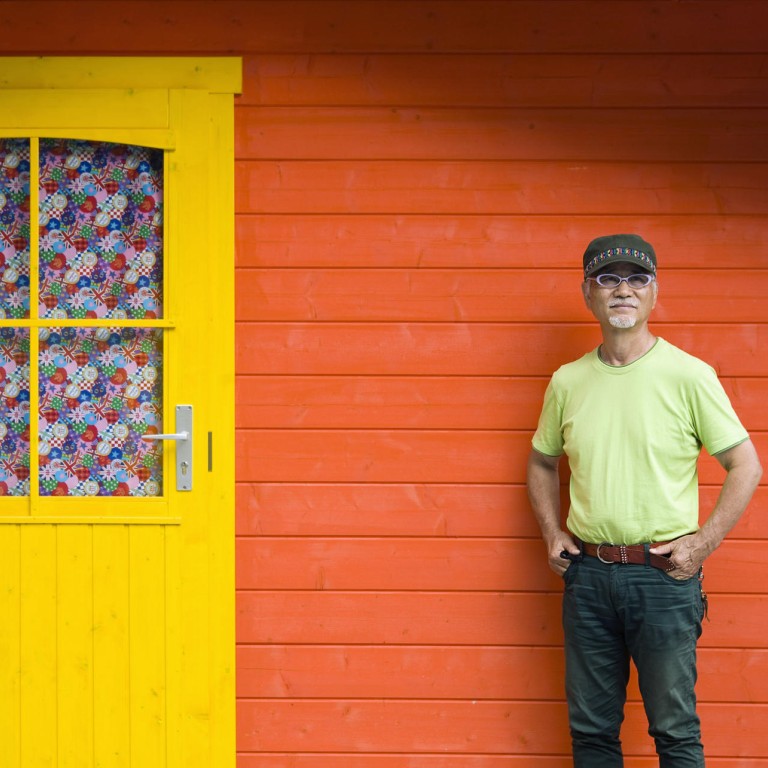
'Rainbow' village emerges from tsunami's sea of mud in Rikuzentakata, Japan
Man who lost everything - twice - decides to build collection of colourful wooden chalets in devastated city as a 'thank you' to volunteers
It's hard to miss the first completed buildings to appear on Rikuzentakata's weed-infested landscape since the tsunami ripped through the small city in northeastern Japan in March 2011.
On the city's deserted coastal plains, a collection of small wooden chalet-like structures, each one painted a different colour of the rainbow, stands out on the desolate terrain.
His plan is to offer the cosy cabins as accommodation to visiting volunteers as a way of repaying them for their support since the earthquake and tsunami, which killed more than 2,000 Rikuzentakata residents - 10 per cent of the total fatalities in the devastated Tohoku region.
"The disasters really altered my view of the world," said Tomiyama, 71. "Almost 10 per cent of this city's population lost their lives, but I was one of the lucky ones. I decided I wanted to give something back while I still can."
Luck is a word that seems out of place in Tomiyama's vocabulary. After 38 years in the hotel industry, mostly as a computer systems developer for the Tokyo-based Prince chain, the Fukushima native moved north in search of a slower-paced lifestyle.
That quest took him to Ofunato in Iwate Prefecture, where he bought a vacant log cabin and converted it into a jazz cafe.
Then, in 2010, disaster struck when the cafe was burned down at night. Tomiyama survived the fire and immediately searched for a place to restart his post-retirement dream. About 15 kilometres down the coast, he came across a grand, but dilapidated 1920s building in Rikuzentakata.
It was "love at first sight," he said, and he invested about 10 million yen (HK$756,460) to renovate the wooden structure, which had once served as the local town hall but had been abandoned for more than 30 years.
In December 2010 he opened his dream jazz cafe, "h. Imagine" , named after one of his favourite songs, John Lennon's homage to love and peace.
But just two months and 20 days later, the building was gone, washed away by the mammoth waves that struck the Pacific coast almost 1,000 days ago.
The violent shaking of the magnitude 9 quake forced Tomiyama to higher ground. His clearest recollection was the chilling sound of splintering wood as buildings were ripped apart.
"From where I was standing I couldn't see my place, but I really didn't need to," he said.
He returned a week later to find all that remained of the building was its foundations.
"All I could think was, 'No way, no way, lightning never strikes twice.'"
Volunteers helped to clean up the mess that blanketed his property. Aided by a story about the flattened jazz cafe in a local newspaper, they appealed nationwide for donations of equipment to replace the music system and coffee-making apparatus that had been destroyed to encourage him to once again pursue his post-retirement dream.
The resulting largesse lines the walls of one of the nine cabins he has built to date. His plan is to eventually relocate them in another jazz cafe that he will build within the bungalow village to entertain visitors.
He hopes one day to add other facilities to create a mini-community where young people can gather to thrash out ideas for the region's recovery.
"When you lose everything, your view of material things changes," said Tomiyama.
"I don't see this place as something that belongs to me any more. I thought, if I could build something that would bring a smile to people's faces, that would be enough."

